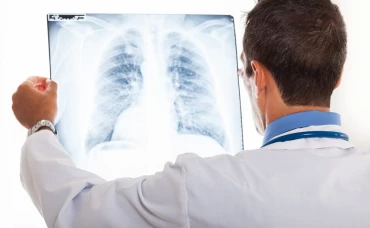How Often Does Medical Malpractice Occur Because of Failure to Diagnose?

When we pause to think about what is involved in medical malpractice, there are some common instances that tend to come to mind. Maybe you immediately start thinking about childbirth injuries that occur because of incompetent medical teams. Maybe you remember that story you heard on the news about there being confusion at a hospital, and a patient had the wrong body part operated on. Or maybe you start thinking about the individuals who suffer from life-changing injuries because they were not observed properly after a procedure or they were given the wrong medication.
As you see, medical malpractice can take on many forms. Some of them get more attention than others, but they are all equally as devastating for the individuals who fall victim to the negligence. One form of medical malpractice that we did not yet mention is failure to diagnose, and this type of medical error accounts for a significant percentage of medical malpractice lawsuits in the United States.
What is Failure to Diagnose?
When we are sick, not feeling well, or something just seems off, our first instinct is to visit a medical professional. Whether this is a family doctor or specialist, we have been taught to trust the opinions and insights of these individuals because they are regarded as experts in their fields. Unfortunately, not every medical professional gives their patients the time and attention they both expect and deserve.
Before we go any further, it is important to note that doctors are not miracle workers. There are many cases where there are not any medications and/or procedures than can help someone who is sick.
In medical malpractice instances that involve failure to diagnose, a proper medical diagnosis is not given because of negligence on the part of a medical professional.
How Often Does Failure to Diagnose Occur?
Diagnosis errors account for a large amount of the medical malpractice incidents in the United States each year. In 2016, statistics revealed that 34 percent of the medical malpractice payouts from that year were related to diagnosis errors. This includes scenarios where individuals were diagnosed incorrectly or their doctors took a very long time to determine the correct diagnosis.
The most unfortunate part of these cases is that the outcomes could have been very different if the proper steps were taken from the very beginning. For example, let’s say that a patient first started seeing a doctor about certain symptoms while they had Stage 1 cancer, but they weren’t correctly diagnosed until it had developed to Stage 4 cancer. Diseases only get worse with time. What could have easily been treated in the beginning has now metastasized to the point that it cannot be cured, all because of someone else’s negligence.
What Conditions are Commonly Seen in These Instances?
Failure to diagnose can occur with any type of medical condition. However, there are certain conditions that tend to result in more catastrophic injuries when they are not treated quickly and correctly. This form of medical malpractice includes:
- Failure to diagnose heart attacks
- Failure to diagnose strokes
- Failure to diagnose cancer (breast cancer, lung cancer, cervical cancer, colon cancer, etc.)
- Failure to diagnose appendicitis
How Can Negligence be Proven in Failure to Diagnose Cases?
In all types of medical malpractice cases, the cornerstone is being able to prove that negligence played a role in the injury. Essentially, you must demonstrate that a medical professional exhibited careless behavior and treated you at a level that was below the expected standard of care. Ask the following questions:
- Did the doctor collect and review the patient’s full medical history?
- Were the necessary tests and screenings performed?
- Was the diagnostic equipment faulty?
- Were test samples mixed up or contaminated?
- Did the doctor fail to review the test results?
- Did the doctor miss warning signs that others would have pick up on right away?
With so many factors involved in medical malpractice cases regarding failure to diagnose, it is important to consult with an experienced attorney as soon as you feel that you or a loved has received negligent medical care. Contact the trusted medical malpractice attorneys at Ross Feller Casey for a free consultation. Ross Feller Casey is among the nation’s preeminent medical malpractice law firms, and has an unmatched record of multimillion-dollar recoveries in failure to diagnose lawsuits.
Disclaimer: Ross Feller Casey, LLP provides legal advice only after an attorney-client relationship is formed. Our website is an introduction to the firm and does not create a relationship between our attorneys and clients. An attorney-client relationship is formed only after a written agreement is signed by the client and the firm. Because every case is unique, the description of awards and summary of cases successfully handled are not intended to imply or guarantee that same success in other cases. Ross Feller Casey, LLP represents catastrophically injured persons and their families in injury and wrongful death cases, providing legal representation in Pennsylvania and New Jersey.





